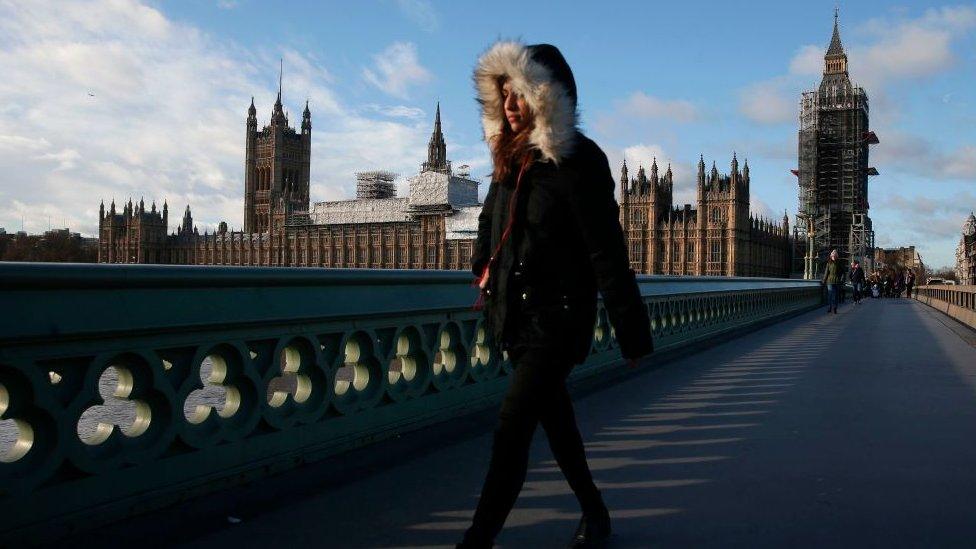Why MPs are talking about their seats
- Published

Whether you're talking about the national balance of electoral power or the fates of individual MPs, the forthcoming report by the four boundary commissions (for England, Scotland, Wales and Northern Ireland) are set to have a huge impact on politics.
Today, Leader of the House Andrea Leadsom told MPs the reports will be available from Monday 10 September.
The story so far: the Conservative Party feels it is disadvantaged by the current distribution of parliamentary seats - they have big suburban and rural seats with large electorates, while Labour, in particular, elects MPs from many smaller urban constituencies - they contend that their voters are not being properly counted.
Effectively, the Conservatives say, the system is weighted against them.
At the same time they also want to cut the cost of politics by reducing the number of MPs from 650 to 600.
The result of this was an instruction to the boundary commissions to redraw the electoral map, so that there were 600 constituencies of a standard size (except for a couple of island seats, which are treated differently).
Few parliamentary seats would be unchanged by this exercise.
At an electoral level the big change would be adding new hinterland to a lot of already closely fought city seats - Lincoln, for example - and the assumption is that the addition of a few thousand suburban or rural voters could tilt them towards the Conservatives.
In Wales it might mean that the Conservative constituencies all see the addition of Labour-voting areas.
At a Westminster level, it also puts the future of a lot of MPs in doubt.
Big changes to almost all constituencies implies a sweeping candidate reselection exercise, which might pit neighbouring MPs against one another….Conservatives have been told there will be no MP left behind, but there is some scepticism on the backbenches.
Does that mean they will all be found safe seats (which looks logically impossible) or will some of the losers in this intricate game of musical chairs end up pitched into candidacies for unwinnable marginal?
Alternatively, will the MPs left standing when the music stops be teleported into the House of Lords?
And then there's the politics: will a general reselection exercise provide an opportunity for a purge of pro-EU Tories or anti-Corbyn Labour MPs? With party unity visibly strained on both sides of the Commons, this apparently technical change could destabilise both government and opposition - if it goes ahead.
This may be firm government policy, and it may help the Conservatives win the next election, but on the Turkeys-Early Christmas principle, many Conservative MPs are disinclined to vote for it; there are serious observers who doubt the government has the numbers, and that could mean a compromise along the lines of the Labour MP Afzal Khan's private member's bill, external (currently marooned in committee, for lack of a money resolution) to redraw the boundaries with more equal number of voters in each seat, but drop the idea of cutting the number of MPs.
In a hung parliament that may be the best the government can get.